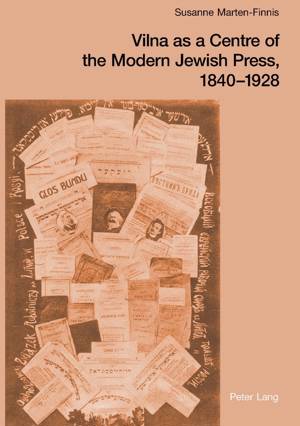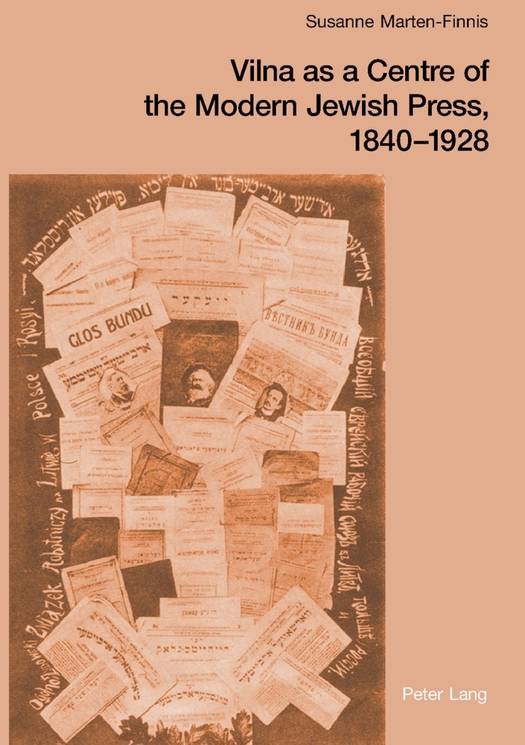
- Afhalen na 1 uur in een winkel met voorraad
- Gratis thuislevering in België vanaf € 30
- Ruim aanbod met 7 miljoen producten
- Afhalen na 1 uur in een winkel met voorraad
- Gratis thuislevering in België vanaf € 30
- Ruim aanbod met 7 miljoen producten
Zoeken
Vilna as a Centre of the Modern Jewish Press, 1840-1928
Aspirations, Challenges, and Progress
Susanne Marten-Finnis
Paperback | Engels
€ 71,45
+ 142 punten
Omschrijving
Vilna (Polish Wilno), modern Vilnius and capital of Lithuania, was the traditional spiritual and intellectual centre of Jewish thought in the Russian Empire. It was often referred to as the 'Jerusalem of Lithuania', a term that has now come to stand for the lost world of Jewish life in Europe. Most people today learned what they know about this Vilna from autobiographies or personal memoirs. This book takes a more objective look at how Vilna became a uniquely important centre of the Jewish press. In particular it follows the development of the Jewish press within the context of modernising Imperial Russia during the second half of the nineteenth century.
Vilna is revealed as an important centre for the Jewish Socialist movement, the Bund, towards the turn of the nineteenth century and in the years running up to the 1905 Revolution. Bundist journalism is discovered to be the sponsor of a Jewish cultural ideology called Yiddishism.
Vilna is revealed as an important centre for the Jewish Socialist movement, the Bund, towards the turn of the nineteenth century and in the years running up to the 1905 Revolution. Bundist journalism is discovered to be the sponsor of a Jewish cultural ideology called Yiddishism.
Specificaties
Betrokkenen
- Auteur(s):
- Uitgeverij:
Inhoud
- Aantal bladzijden:
- 202
- Taal:
- Engels
Eigenschappen
- Productcode (EAN):
- 9783039100804
- Verschijningsdatum:
- 12/02/2004
- Uitvoering:
- Paperback
- Formaat:
- Trade paperback (VS)
- Afmetingen:
- 152 mm x 229 mm
- Gewicht:
- 276 g

Alleen bij Standaard Boekhandel
+ 142 punten op je klantenkaart van Standaard Boekhandel
Beoordelingen
We publiceren alleen reviews die voldoen aan de voorwaarden voor reviews. Bekijk onze voorwaarden voor reviews.











